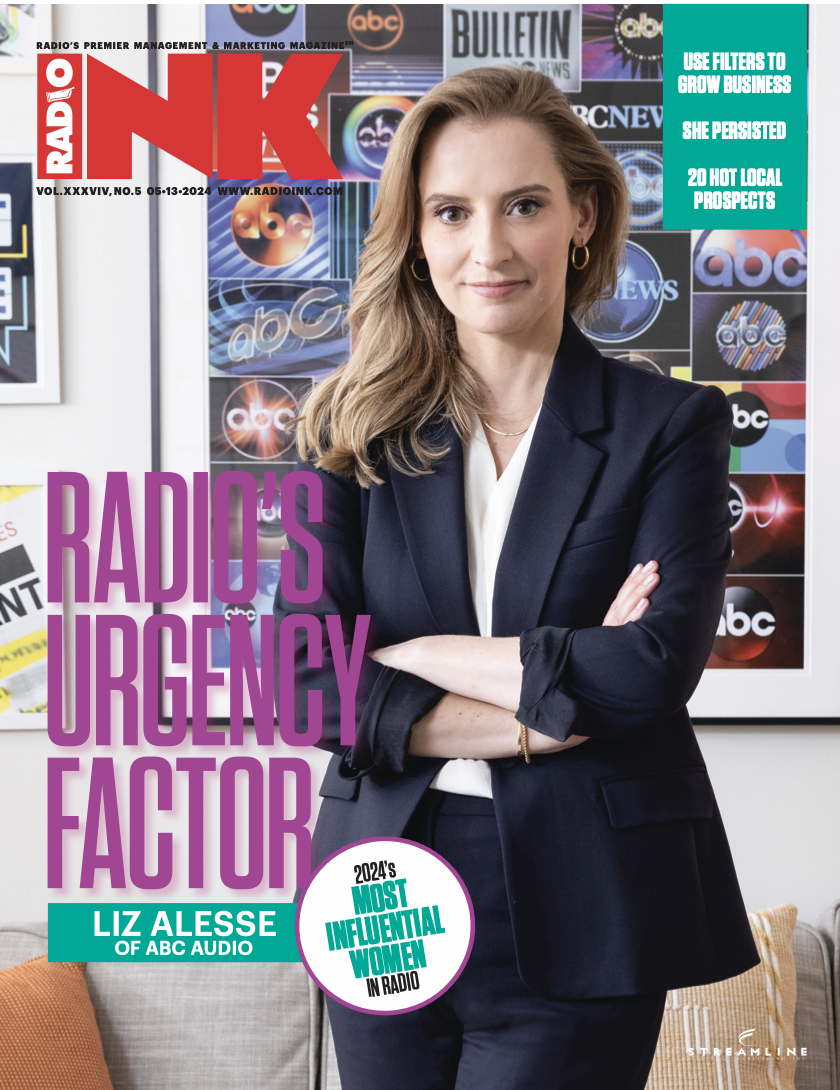
Has Amazon just come up with another, unregulated way to come after your ad revenue? The company says Amp, which is in Beta, is a new app that allows users to create live, shared radio shows. The music is licensed from Universal Music Group, Sony Music Entertainment, Warner Music Group, and other independent music companies.
The Amp music library now has tens of millions of licensed songs that can be curated into radio stations by users.
“Radio has always been about music and culture,” said John Ciancutti, vice president of Amp. “But imagine if you were inventing the medium for the first time today. You’d combine what people love about radio—spontaneous talk, new music discovery, diverse personalities, and broad programming—with all that’s made possible by today’s technology. You’d make it so anybody with a phone, a voice, and a love for music could make their own show. And that’s exactly what we’re doing. Amp makes it possible for you to grab the mic and run the airwaves. We are creating a new version of radio that will have an infinite dial of shows.”
Amp is free to use.
Creators also have the ability to take live calls into their radio shows.
Amp is also creating built-in discovery and notifications, so listeners can find and follow creators and upcoming shows. Users can also pre-plan and schedule their shows.
In the future, Amp plans to add Alexa integrations and social sharing.
Worried? Let us know below in the comment section.







Come on,
Home entertainment DJ.s are so not good. For the most part, the only listeners to the nonprofessional DJ are his or her family. AMAZON is trying to compete with the smaller market radio stations that Sell Time to the want-to-bee. Who is going to listen for any long period of time to that? It is like when nu-age music came out once you hear one cut you have heard it all. Come on radio, you do not need to worry about AMAZON. That is if you work hard at making your station special again. The professional announcer/DJ with terrestrial experience is still your best conduit for internet or terrestrial.
While I agree with Denny that the best content will win, I disagree with his assessment of the potential of this platform. Amazon doesn’t care if they get 100,000 people listening to one of these “stations”, or one different person listening to each of 100,000 “stations”. They still have an aggregated audience of 100,000 people reached. If some of those listeners would have listened to Radio, then that is a threat. If businesses move some or all of their advertising from Radio to platforms such as these due the trackability and the potential of the proximity to purchase (“just click here to get this product on Amazon”), that is a threat. And I agree with TheBigA that Radio has the opportunity to compete on this platform. The question is, how would Radio benefit monetarily if Amazon gets the ad revenue?
Actually Amazon is being very vague about any kind of monetization. I don’t see that this is an ad-supported service. I also didn’t see if users are allowed to run their own ads in their shows. How does a user monetize this service? Or is it just for hobbyists? Maybe someone can explain.
Despite my best efforts, I can’t get my daughters (14 and 10) to have any interest in using a radio. They are all about online sources of content. Even in the car, they want to hear satellite radio vs. terrestrial. And, I blame the proliferation of giant corporate radio for this. Thousands of stations that sound identical from coast to coast. Voicetracking which may “sound” local but which lacks any connection to the locality – featuring BORING liner card lines and little more. Musical programming that’s like Spotify playlist only lacking some of the newest hits. And, MEGA commercial stop sets. Whoever pioneered this idea is one of the first who should be on trial for the slow death of radio. Nobody wants to sit through 4, 5, 6 or more minutes of ads. Nobody.
Go on the internet and find an aircheck or two from the 1960’s or 1970’s. Lots of ads, but only one or two at a time. Jocks with personality. Operations that sounded BIG, even in smaller markets. Excitement. There’s nothing left of that for today’s younger audience so they’ve gone elsewhere. And this Amazon concept is yet another nail in the coffin.
The part of this that no one’s talking about is that this device has already made licensing arrangements with the record labels to play music. That’s something unique. That’s not being done in podcasting, for example. The goal might not be to “steal ad revenue,” but to build subscribers to its Amazon Music base. That was the goal behind Alexa, and it worked pretty well. A lot of FM stations promote Alexa. There’s no law preventing radio companies from creating these digital platforms. The marketplace is wide open.
My 23-year old daughter and I had a long discussion several nights ago about the state of radio and she said that radio in its present form will die…and she has, literally, grown up with it in the house because of me. She believes that we have to recognize that audio is now an individual thing. Too many commercials, mindless DJ chatter and the same 5 songs over and over (HER words) will no longer cut it. She says radio has to get into the interactive, live world now to save itself. That, folks, is our future………..or is it someone else’s???
Should radio be worried about “………..?”
Napster
Sirius
Myspace
Youtube
Facebook
Twitter
Spotify
They all stole attention and money from radio. Today, the best content creators are powered by Wifi, not clunky radio transmitters. If you’re over 50 (‘ish), you won’t understand this, and that’s fine because you’ve mostly had your opportunity. Along with that, you mostly lived in fear of digital opportunities and creating content online. It was easier (lazier) to run recorded phone calls (“where you calling from?”, give us worthless artist info,, and promote needless chatter about a client promotion.) You squandered away a chance to stay relevant, or even amplify your relevance. Also, you denied an industry a new and exciting identity on devices that people will carry for decades.
Most of the current owners are sticking with their old, and out-of-touch talent and managers. Therefore, your results will be similar.
The good news. These old, slow and boring companies don’t control Wifi. Their rules don’t affect you or limit your content opportunities. Advertisers love this. The money is out there. Finally, limitless ideas can be put into action. There’s no insecure PD to hold you up. No fearful GM who’s strategy is to “stay off the radar” for two more weeks and get that next paycheck.
These scrolling pictures on the lower right sum it up. Old, tired folks repeating that same BS. Ignore them. They lost control by being scared of losing control.
You said, “ If you’re over 50 (‘ish), you won’t understand this, and that’s fine because you’ve mostly had your opportunity. ” Dear Anonymous AMP – your predilection for ageism based arguments, “If you’re over 50 (‘ish), you won’t understand this, and that’s fine because you’ve mostly had your opportunity,” will most likely come back to haunt you. When will you under 50 (‘ish) prognosticators stop whining? Congress tarnished the Radio Star decades ago by allowing the FCC to allow cell phone companies to block adding a radio reception technology… until it was too late. Look it up cupcake. The wild wild WiFi you describe will get its comeuppance just as soon as those congressmen and congresswomen smell a campaign contribution.
Hey Gare Bear,
You sorta just proved the person correct. All you old radio fossils do is talk about the past. As Eminem said ” You’re too old, let go, it’s over, Nobody listens to techno.”
Google Eminem. Oh yea, Google is a website that…. ahhh, never mind.
Nothing will ever replace the warmth or the magic of an AM or FM radio station. The Internet is way over-compressed, without the warmth, and creates a very edgy sound. On the other hand, AM and FM provide a warm one-to-one sound. Unbelievably, AM and FM have the listeners that have the money to patronize the sponsors. That is the name of the game that is if you are on, real radio. If you are 40 or 50 that is great. Only simple-minded immature and certainly not seasoned individuals like (Slim Shady Talk) find it necessary to cut you down. Did you also notice he would not use his real name? Where can we listen to you Slim? Are you there or hiding behind your USB Microphone ? We wish AMAZON all the luck in the world. May I show you our rate card ? Yes, we also have an internet feed if you like
Denny,
All due respect, AM-FM has been losing money for nearly a decade. I mean, trying to sell “warmth” seems a bit unicorn’ish. Spotify, Facebook, Amazon ALL trade for tons more than ANY broadcast radio company, so if that’s the “name of the game”, then you’re dead wrong and again, living in the past…. at least your past has “warmth”….
While its nice to see democracy in webcasting, making it easy for anyone to have a soapbox in the new digital world, it will increase the noise floor in the blogosphere both video and audio. This particular cloud based technology seems to be aiming at corralling aspiring armchair “broadcasters” in the hope that the best most talented will make AMP the place for stream listening. Add to it all of the AI automation Amazon could add for targeting both ads and content directing users towards vendors that sell products through Amazon, it will certainly erode what’s left of OTA broadcasting as well as brick and mortar stores. I’m surprised Google hasn’t used its huge database and cloud resources to do precisely the same thing. Right now, only commuter time is safe for OTA radio. But with the integration of vehicle dashboards and 5G cellular data even that will fall to Internet streaming. If Amazon plays their cards right, they could automatically insert local news, traffic reports and weather on AMP too.
Should you be worried? Yeah. Should we all be worried about the global implications for society as a whole when a few huge companies control the new digital airwaves so to speak? Yup.
Chicken Little. No company “controls” the digital airwaves. The internet is free for anyone to access. The only thing these companies do is provide a free platform to do it. But you can bypass all of them and do your own thing. It’s just not as easy. And then you have to spend some money to get people to listen. But nobody controls the internet. That’s why people are afraid of it.
I ran across a 61 year old lady the other day who asked me what I did for a living. Well, I run an LPFM radio station (in part). No living but that is beside the point. She replied that she didn’t know that we had any “old fashioned” radio stations operating in Charlottesville (VA) anymore. OUCH!
And Charlottesville had several LPFMs as of a few years ago, right?
I wonder if we could patch our LPFM (I run one too!) into Amp (ducking and weaving)
Jon -it’s called “marketing” to get the word out about your existence. When was the last time you reached out to your intended audience ? It’s not just your LPFM. It’s broadcasters in general missing every opportunity to be heard and known. No budget? Use news releases, community outreach and get a local PR person to help. Many will do it pro bono. The room is getting crowded and the need to be noticed increases daily.
If you’re not worried about changes in the business space you’re quite simply an idiot